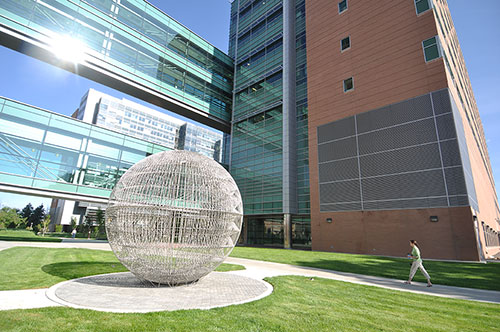Research Studio Program

Research Studio virtual sessions for 2025 will be conducted on the following dates:
- Tuesday, November 18, 2025
- Tuesday, December 16, 2025
Applications are accepted at any time and spaces are filled on a rolling basis.
The virtual Studio Program offers
a dynamic and integrative way of increasing and improving the quality of clinical and translational research. A Studio session is a structured and collaborative discussion bringing together relevant research experts to help investigators
with specific questions at a specific stage in the research process. It is a chance to discuss research hurdles and communication of research objectives with experts. A 90 minute opportunity to improve research impact and frame your research vision.
The Research and Development Studio process is based on models from industry that demonstrate that multidisciplinary content experts can increase research impact.
The service is free and funded by the CCTSI.
Studio Format is Simple
A 90-minute consultation with a panel of three to five carefully selected experts from varied disciplines.
- Investigator presents brief summary. (10-15 minutes)
- Focused discussion with experts for three or four predetermined questions from the investigator. The conversation is moderated to maintain focus on problem-solving and the development of helpful solutions. (60-70 minutes)
- Moderator and panelists provide summarized comments. (10-15 minutes)
Following the session, the investigator receives a summary report and audio recording from the discussion for the investigator’s ongoing reference.
Categories of Research
- T1 – T2 Protocols: "Bench to Bedside". Translation to humans or patients. Protocols include pathophysiology, mechanisms of disease, clinical feasibility and safety, and efficacy trials.
- T3 – T4 Protocols: "Bedside to Practice and Policy". Translation to practice or population health. Protocols include comparative effectiveness, epidemiology, health services, health behavior and education, implementation science, patient-centered outcomes, and health policy research.
Studio Consultation Types
We assist investigators with the following pre- and post-award stages:
- Hypothesis Generation. Develop innovative and well-constructed hypothesis and specific aims.
- Study Design. Select and develop appropriate methods and design to address the hypothesis.
- Implementation. Execute and monitor projects to achieve the best standards in laboratory, clinical or community based research.
- Grant Review. Function as an internal study section to make grant applications more competitive and increase chance of funding.
- Analysis and Interpretation. Analyze and interpret study data to develop additional research questions and theories. (Not a full data analysis, but suggestions for type of analysis, interpretation and communication of data.)
- Manuscript Review. Prepare manuscripts for publication including review of focus, logic, data presentation and identification of appropriate journals.
- Translation. Examine research implications for application and/or relevance in communities, practice and policy.
Take your research project to the next level
| Testimonials |
| "Thank you for this highly informative and helpful session to help with my PCORI resubmission" - Investigator "Very beneficial service and significantly improved the quality of my research project" - Investigator "It is a wonderful concept, very well organized and clearly beneficial to the PI." - Expert Panelist |